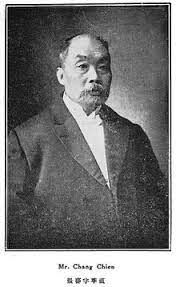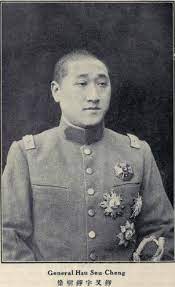Chang Chien (1 July 1853-24 August 1926), industrialist, educator, and conservationist, was a leading social reformer and a scholarentrepreneur. Beginning in 1899 with the Dah Sun Cotton Mill, he established an industrial complex in Nant'ung. His T'ung Hai Land Reclamation Company became a model for others. Chang devoted the last decade of his life to […]








